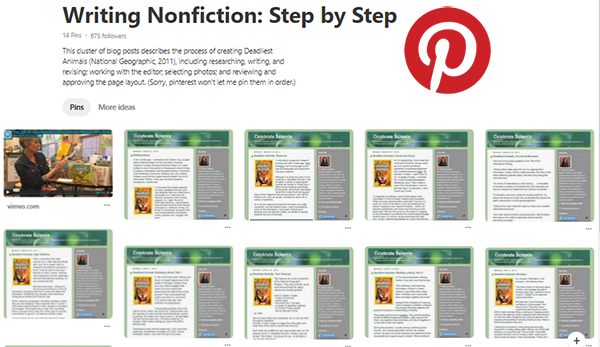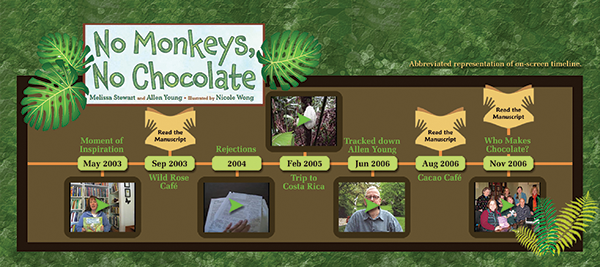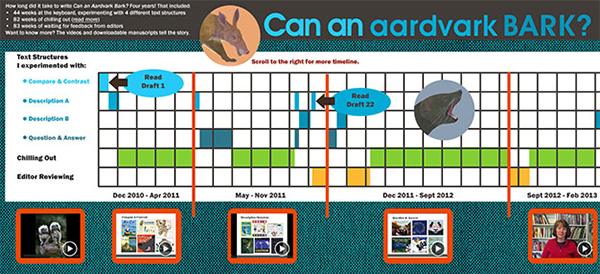In some ways, it’s too bad that the curriculum in most schools calls for writing personal narratives at the beginning of the school year because I think students could learn a lot by crafting a personal narrative about the process of researching, writing, and revising an informational writing assignment.
What do I mean by that? Well, lately, I’ve been thinking about my nonfiction book-making process as a living story. Even though I write (mostly) expository nonfiction, there is a story, a personal narrative, behind every book I create.
I documented the story of crafting Deadliest Animals in a series of blog posts, which I bundled together on this Pinterest board.
I told the story behind No Monkeys, No Chocolate in this interactive timeline.
Based on questions and feedback from students and teachers, I created a modified interactive timeline with infographic elements to describe the experience of writing Can an Aardvark Bark?
I created these materials as educational resources for teachers and students, so they could see and hear and understand a professional writer’s process. My goal was to pull back the curtain, so that students could see that my experience is very similar to their own.
But, surprisingly, I profited from the process myself. By thinking through and reliving the experience, I noticed things that I consistently do wrong, allowing me to brainstorm ways to work smarter. I was able to ask other writers targeted questions about their process, and experiment with the techniques and strategies they suggested.
I think young writers could also benefit from telling their stories of creation. Imagine students using tools like Flipgrid or Padlet or audio recordings or storyboarding to document their nonfiction writing experiences. They could address some of the following questions:
- What was my process?
- What challenges did I face?
- How did I overcome them?
- Who or what helped me?
- What might I try differently the next time?
This activity will help to solidify the steps of the nonfiction writing process in their minds, which as I discuss in this post, can really help some students. It would also offer a fun, authentic form of self-assessment and a starting point for dialogue with others.
Why not give it a try?




I LOVE this post! It’s informative and so encouraging, teaching us that writing a book can be a long process. The end-product is great (hopefully), but the process is just as important to acknowledge. Thank you.
Thanks, Julie. It is a journey, and it takes as long as it takes.
These timelines are informative and encouraging. Persistence pays. I also love that you found some helpful insights about your own writing process as you were creating these resources for teachers and students.
Yes, I wasn’t expecting to learn anything myself, but I did. There’s always something new to learn about the craft of nonfiction writing.
I love the idea of reflecting more on the process! Will try this with kids for sure!
Let me know how it goes!